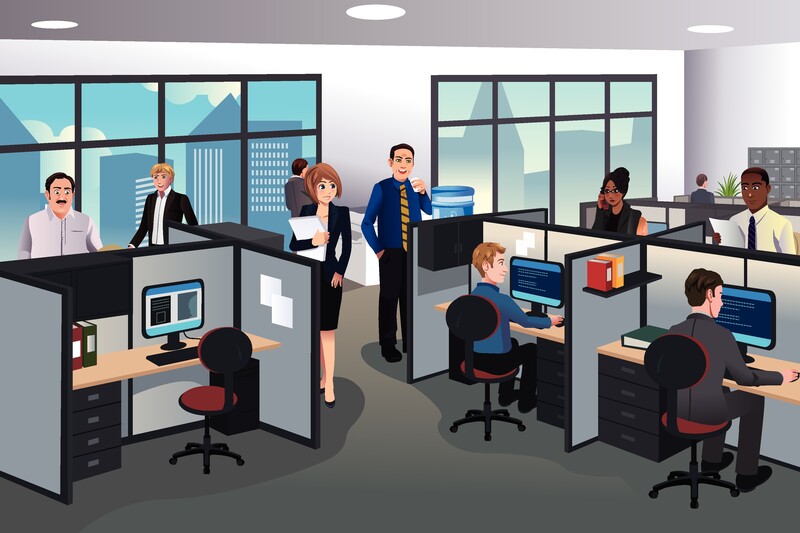Open-Plan Offices (OPO) became a trend many years ago. They were largely a cost-saving initiative by management, and gave the false hope that employees being surrounded by co-workers would foster teamwork and creativity.
A large study1 showed that the negative effects outweighed the benefits and “enhanced ‘ease of interaction’ were smaller than the penalties of increased noise level and decreased privacy resulting from open-plan office configuration.”
One survey2 of office workers reported that 53% of them found the noise levels in an OPO significantly impacted their capacity to focus and be productive.
The average worker’s work is interrupted every 11 minutes3 by face to face or digital distractions and as it can take 23 minutes4 to return to where you were in your project, the effects on productivity are devastating. To try and compensate for not being able to avoid interruptions, people try and work faster and this makes them more stressed, more likely to make errors and overall less satisfied with their work.
And how does this stress affect your health?
Research5 shows that OPOs increase “physiological indicators of stress in the form of heartrate and skin conductivity”.
And as many studies have shown ongoing, chronic stress can cause or exacerbate mental health problems (e.g. depression, anxiety), increase cardiovascular issues (e.g. heart disease, high blood pressure), increase the likelihood of strokes, increase obesity and other eating disorders, increase menstrual problems and sexual dysfunction, and aggravate skin and hair problems and gastrointestinal problems.
What can you do to prevent yourself from being distracted?
There are a number of things you can do:
- tell your co-workers not to disturb you between certain hours
- put up physical cubicle barriers that say the same thing
- turn off visual and sound notifications (e.g. you don’t have to be notified every time you receive an email)
- use social media blocking software to prevent yourself from being led into temptation
- use a timer and give yourself 40 minutes to concentrate on the task at hand followed by a 10 minute break and then repeat the process.
If you still find yourself struggling to avoid interruptions and to stop distractions at work, talk to your counselor about it. Maybe there are deeper reasons for your distractibility. They can work with you to reduce stress and to become more immune from distractions both at work and at home.
Research:
- https://www.sciencedirect.com/science/article/abs/pii/S0272494413000340#bib4
- https://www.gensler.com/uploads/document/337/file/2013_US_Workplace_Survey_07_15_2013.pdf
- https://www.researchgate.net/publication/300918076_Focused_Aroused_but_so_Distractible
- https://www.ics.uci.edu/~gmark/chi08-mark.pdf
- https://www.cambridge.org/core/journals/journal-of-management-and-organization/article/abs/openplan-office-noise-is-stressful-multimodal-stress-detection-in-a-simulated-work-environment/F3EF8D2DF47767F18CBF5C081D6AB3A0

